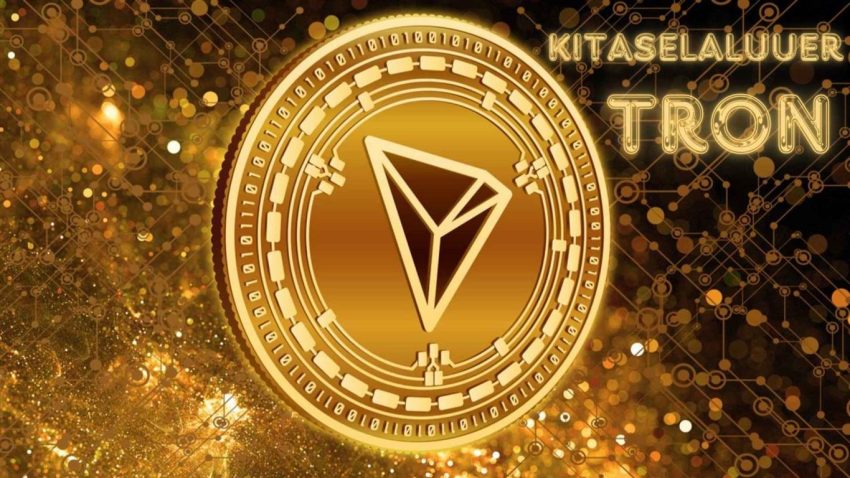Introduction
In the world of cryptocurrencies, Tron (TRX) has emerged as a prominent player, aiming to revolutionize the way we share and consume digital content. Tron’s vision is to create a decentralized internet where content creators have more control and receive fair compensation for their work. In this article, we will delve into the origins of Tron, its technology, use cases, partnerships, and its potential to reshape the entertainment and content-sharing industries.
The Birth of Tron
Tron was founded by Justin Sun in 2017. Sun, a visionary entrepreneur, had previously worked as the Chief Representative for Ripple in China and had a deep understanding of blockchain technology. He believed that the internet was in need of a major overhaul, particularly in terms of content distribution and monetization.
Tron’s Initial Coin Offering (ICO) in 2017 raised $70 million in just a few days, making it one of the most successful ICOs at the time. The TRX token was created as the native cryptocurrency of the Tron network, fueling its decentralized ecosystem.
Technology Behind Tron
At the core of Tron’s technology is its blockchain, which employs a Delegated Proof of Stake (DPoS) consensus mechanism. This mechanism allows TRX holders to vote for Super Representatives (SRs) who validate transactions and maintain the network. This approach is more energy-efficient than traditional Proof of Work (PoW) systems, like Bitcoin, and ensures faster transaction speeds.
this platform blockchain supports the creation of decentralized applications (DApps) and smart contracts, similar to Ethereum. However, this platform distinguishes itself with its high throughput capacity, low fees, and scalability. This makes it an attractive platform for developers and users alike.
Use Cases of Tron (TRX)
this platform has several compelling use cases that set it apart from other cryptocurrencies:
- Decentralized Content Sharing: Tron’s primary objective is to decentralize the content-sharing industry. Traditional platforms like YouTube and Facebook often take a significant cut of content creators’ earnings. Tron aims to empower creators by allowing them to monetize their content directly, without intermediaries. Users can pay content creators in TRX, ensuring that creators receive fair compensation for their work.
- Gaming: The gaming industry is one of the early adopters of blockchain technology. Tron’s high-speed and low-fee network make it an ideal platform for blockchain-based games. Games like “CryptoKitties” and “Epic Dragons” have been built on the Tron blockchain, offering players true ownership of in-game assets.
- DeFi (Decentralized Finance): Tron has also ventured into the world of decentralized finance (DeFi). DeFi applications on Tron allow users to borrow, lend, and trade digital assets without relying on traditional financial intermediaries. Projects like JustSwap and Sun.io have gained popularity within the Tron ecosystem.
- NFTs (Non-Fungible Tokens): Tron has witnessed significant activity in the NFT space. Artists, musicians, and creators are minting NFTs on the Tron blockchain to represent ownership of digital art, collectibles, and other unique assets.
Partnerships and Collaborations
this platform has actively pursued partnerships and collaborations to further its vision and expand its ecosystem. Notable partnerships include:
- Samsung: Tron was integrated into the Samsung Blockchain Keystore, enabling users to store their TRX securely on Samsung devices. This move increased TRX’s accessibility and exposure.
- BitTorrent: Tron acquired BitTorrent, one of the world’s largest peer-to-peer file-sharing platforms. This strategic move allowed Tron to leverage BitTorrent’s vast user base and integrate blockchain technology into file-sharing, potentially revolutionizing the way digital content is distributed.
- Steemit: Tron acquired Steemit, a decentralized social media platform built on blockchain technology. This acquisition aimed to create a synergy between Tron’s vision for content-sharing and Steemit’s existing user base.
- Poloniex: Tron also acquired the cryptocurrency exchange Poloniex, which provided a trading platform for TRX and other digital assets. This move aimed to strengthen Tron’s presence in the cryptocurrency trading ecosystem.
Challenges and Criticisms
While this platform has made significant strides in the blockchain and cryptocurrency space, it has not been without its fair share of challenges and criticisms:
- Centralization Concerns: Critics argue that Tron’s DPoS consensus mechanism may lead to centralization, as a limited number of Super Representatives control the network. This has raised concerns about the level of decentralization within the Tron ecosystem.
- Regulatory Scrutiny: Like many cryptocurrencies, Tron has faced regulatory scrutiny in various countries. Compliance with regulations can be a significant hurdle for its adoption and expansion.
- Competition: Tron competes with well-established blockchain platforms like Ethereum, Binance Smart Chain, and Solana. These platforms have larger developer communities and ecosystems, making it challenging for Tron to gain a significant market share.
- Security Concerns: Tron has experienced security vulnerabilities and smart contract exploits in the past, which raised questions about the platform’s overall security.
Future Prospects
Despite its challenges, this platform continues to forge ahead with its mission to decentralize the internet. Its partnerships, acquisitions, and growing ecosystem demonstrate its commitment to creating a decentralized content-sharing and entertainment industry.
this platform has unique features, such as high throughput, low fees, and scalability, position it as a viable platform for DApps, DeFi projects, and NFTs. As blockchain technology continues to evolve, tron may find opportunities to address its criticisms and solidify its position in the crypto space.
Conclusion
this platform is on a mission to transform the way we share and consume digital content. With its decentralized platform, Tron empowers content creators, gamers, and developers to leverage blockchain technology for fair compensation, low fees, and fast transactions. While it faces challenges and criticisms, its partnerships and growing ecosystem signal a promising future for this ambitious project. this platform is poised to play a significant role in the evolution of decentralized entertainment and content sharing on the internet.

